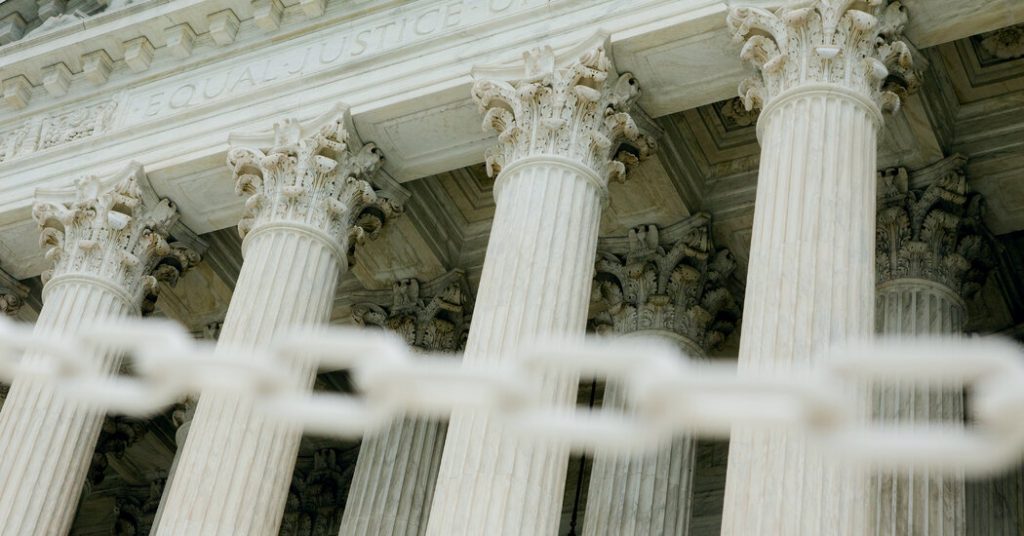Many people believe that Associate Justices Samuel Alito and Clarence Thomas should recuse themselves from cases related to the January 6th Capitol riot due to their potential bias. However, the lack of a binding Supreme Court ethics code has led to skepticism about the possibility of enforcing such recusals. Justice Thomas’s wife, Ginni Thomas, was involved in the “stop the steal” movement, while Justice Alito’s property displayed political symbols connected to the insurrection and opposition to President Biden. There is considerable concern over the impartiality of Justices Alito and Thomas in deciding cases involving Donald Trump’s potential liability for crimes committed on January 6th.
Despite the perception that nothing can be done about the recusal situation due to the court’s low ethical standards, the U.S. Department of Justice has the authority to petition the other seven justices to require Justices Alito and Thomas to recuse themselves from these cases. The department can invoke the Constitution’s due process clause and the federal statute mandating judicial disqualification for questionable impartiality as grounds for this motion. The recusal statute explicitly applies to Supreme Court justices, emphasizing the importance of maintaining impartiality and avoiding potential conflicts of interest.
When considering the argument for recusal, it is essential to recognize the objective standards outlined in previous Supreme Court cases, such as Williams v. Pennsylvania in 2016. Justice Kennedy highlighted the need for an objective standard for identifying bias and outlined the principles for determining when recusal is necessary. The failure of a biased judge to recuse themselves can taint the entire judicial proceeding, impacting the fairness and integrity of the court’s decision-making process.
The Supreme Court has historically favored recusal when partisan politics or personal bias could compromise judicial impartiality. The case of Caperton v. A.T. Massey Coal Co. in 2009 highlighted the risk of actual bias when judges have close ties to parties involved in a case. The federal statute on disqualification also addresses bias imputed to a spouse’s interest in a case, reinforcing the importance of maintaining integrity and objectivity in judicial proceedings.
The constitutional and statutory standards for recusal apply to all federal judges, including Supreme Court justices. The obligation to enforce recusal standards rests with Chief Justice John Roberts and the other unaffected justices to uphold the integrity and reputation of the institution. By following the objective framework provided by the Constitution and Congress’s recusal statute, the justices can demonstrate their commitment to fairness and impartiality in the judicial process.
In conclusion, the principles of due process and judicial impartiality must guide decisions regarding recusal in cases where bias or conflicts of interest are apparent. The objective standards outlined in previous Supreme Court cases and federal statutes provide a framework for addressing the potential bias of justices Alito and Thomas. By upholding these standards, the court can preserve public confidence in the judiciary and ensure the fair and just administration of justice.


